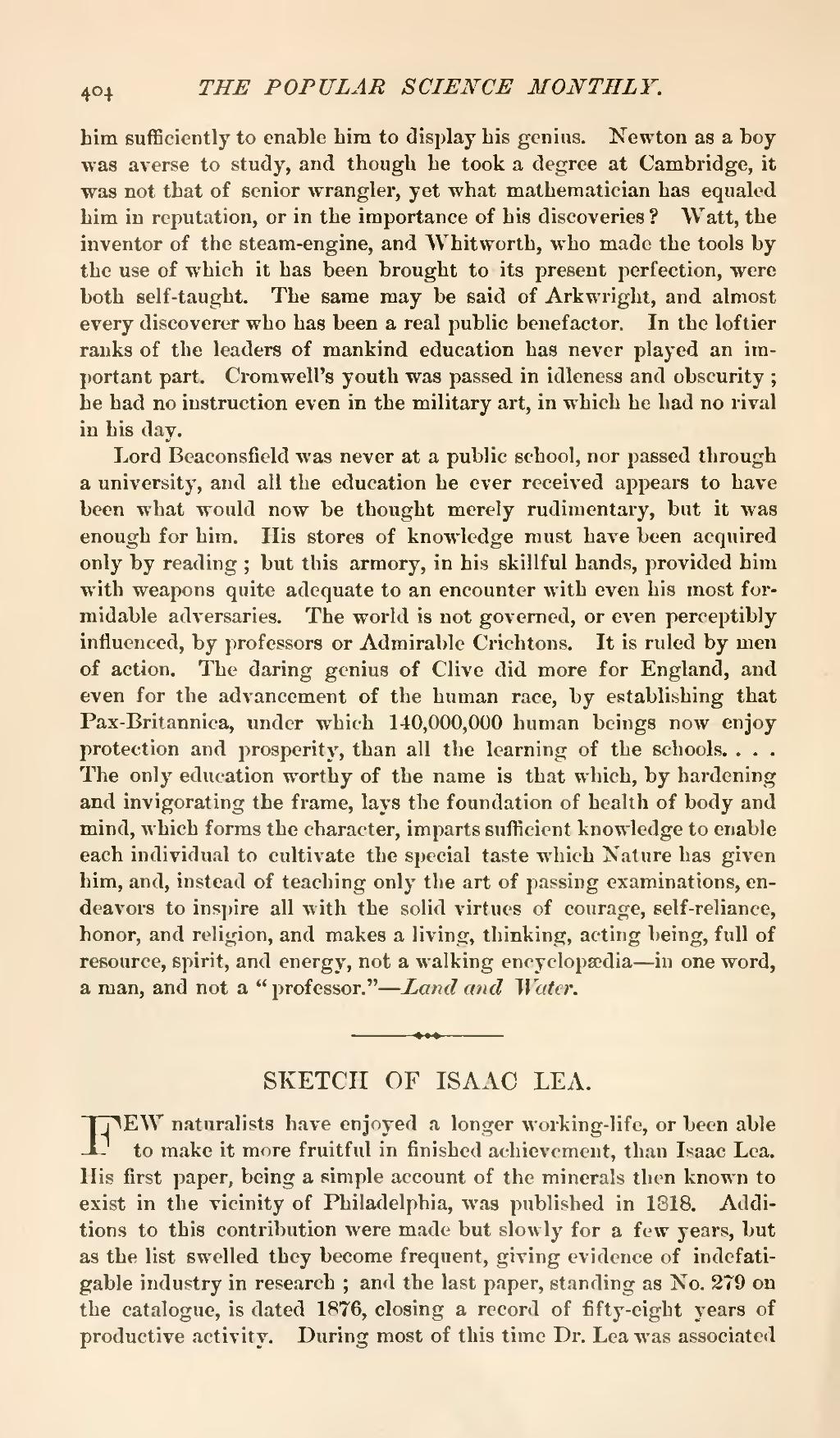him sufficiently to enable Lira to display his genius. Newton as a boy was averse to study, and though he took a degree at Cambridge, it was not that of senior wrangler, yet what mathematician has equaled him in reputation, or in the importance of his discoveries? Watt, the inventor of the steam-engine, and Whitworth, who made the tools by the use of which it has been brought to its present perfection, were both self-taught. The same may be said of Arkwright, and almost every discoverer who has been a real public benefactor. In the loftier ranks of the leaders of mankind education has never played an important part. Cromwell's youth was passed in idleness and obscurity; he had no instruction even in the military art, in which he had no rival in his day.
Lord Beaconsfield was never at a public school, nor passed through a university, and all the education he ever received appears to have been what would now be thought merely rudimentary, but it was enough for him. His stores of knowledge must have been acquired only by reading; but this armory, in his skillful hands, provided him with weapons quite adequate to an encounter with even his most formidable adversaries. The world is not governed, or even perceptibly influenced, by professors or Admirable Crichtons. It is ruled by men of action. The daring genius of Clive did more for England, and even for the advancement of the human race, by establishing that Pax-Britannica, under which 140,000,000 human beings now enjoy protection and prosperity, than all the learning of the schools. . . . The only education worthy of the name is that which, by hardening and invigorating the frame, lays the foundation of health of body and mind, which forms the character, imparts sufficient knowledge to enable each individual to cultivate the special taste which Nature has given him, and, instead of teaching only the art of passing examinations, endeavors to inspire all with the solid virtues of courage, self-reliance, honor, and religion, and makes a living, thinking, acting being, full of resource, spirit, and energy, not a walking encyclopædia—in one word, a man, and not a "professor."—Land and Water.
| SKETCH OF ISAAC LEA. |
FEW naturalists have enjoyed a longer working-life, or been able to make it more fruitful in finished achievement, than Isaac Lea. His first paper, being a simple account of the minerals then known to exist in the vicinity of Philadelphia, was published in 1818. Additions to this contribution were made but slowly for a few years, but as the list swelled they become frequent, giving evidence of indefatigable industry in research; and the last paper, standing as No. 279 on the catalogue, is dated 1876, closing a record of fifty-eight years of productive activity. During most of this time Dr. Lea was associated
